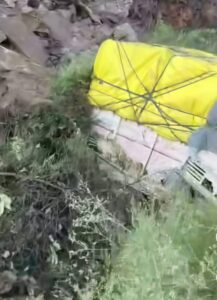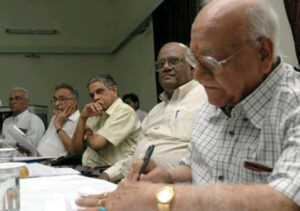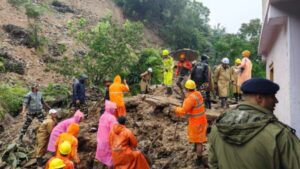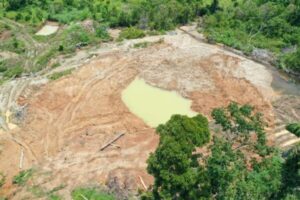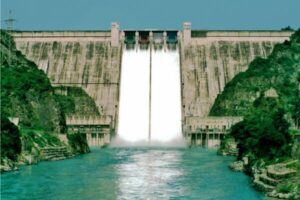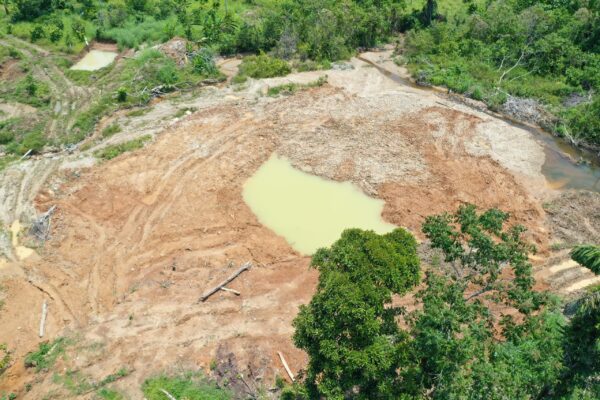
The devastation caused by heavy monsoon rains over the past three years has emerged as a grave threat to the fragile Himalayan ecosystem, underscoring the urgent need for corrective action to combat the impacts of climate change.
Environmentalists and social activists have repeatedly stressed the importance of revisiting the current development model — particularly the rapid expansion of road construction and hydropower projects. This concern was echoed during the recently concluded monsoon session of the state assembly, where legislators from both major parties called for a serious reassessment of the state’s development strategy before it’s too late.
In fact, Public Works Minister Vikramaditya Singh openly acknowledged the need for hill states to pursue sustainable development that aligns with their sensitive ecology. Himachal Pradesh has so far recorded 122 landslides, 95 floods, and 45 cloudburst events, resulting in a loss of ₹3,526 crore and 341 lives — figures that reflect unprecedented destruction and devastation.
The Supreme Court, Himachal Pradesh High Court, and the National Green Tribunal (NGT) have consistently emphasized the need for a comprehensive action plan to mitigate the effects of climate change and global warming. These impacts manifest as cloudbursts, floods, erratic rainfall, prolonged droughts, accelerated glacial melting, and rising temperatures — all of which, in turn, are disrupting agricultural and climatic conditions, affecting the quality and yield of crops such as apples.
Videos showing hundreds of logs floating in the Ravi River after heavy rains in Chamba, and debris entering the Pandoh Dam following a cloudburst in Seraj, Mandi, have raised serious questions about claims denying illegal tree felling. According to the Forest Survey Report–2023, Himachal Pradesh’s forest cover stands at 28%, and the government regularly announces afforestation drives.
However, despite these plantation efforts, it cannot be denied that millions of trees have been cut for major hydropower projects, dams, and road-widening initiatives — not only along major four-lane highways but also under various projects implemented by the Public Works Department. Illegal mining, especially in Kullu and Kangra districts, threatens both public infrastructure such as bridges and the safety of residents living in lower-lying areas.
The way the Sutlej River has altered its course in Kullu and Manali — washing away homes, roads, and bridges — serves as a stark warning against unchecked and haphazard urban sprawl. Despite homes and infrastructure near rivers and streams being swept away every year, no lessons have been learned. The repeated devastation year after year can be attributed to public negligence and weak enforcement of laws. It is crucial to strictly implement building regulations and ensure proper mapping of hazard-prone and landslide-prone zones, which should be declared no-construction areas.
Unbridled construction under the guise of promoting tourism is another pressing issue. With forests and trekking trails choked with litter and thousands of vehicles contributing to pollution, it is high time for the government to regulate the number of tourists visiting popular hill towns based on their carrying capacity. Sooner or later, authorities will have to impose limits on tourist inflow at hill stations to prevent further ecological degradation.

Continuing the achievement of the journey of effectiveness and credibility of more than 10 years in the career of journalism, as a woman journalist, I am Serving as the founder, promoter and editor of DiaryTimes with the trust and support of all. My credible coverage may not have given a big shape to the numbers, but my journey presents articles that make you aware of the exact and meaningful situations of Himachal’s politics, ground issues related to the public, business, tourism and the difficult geographical conditions of the state and financial awareness. DiaryTimes, full of the experience of my precise editorial expertise, is awakening the flame of credible journalism among all of you, so that the eternal flame of meaningful change can be lit in the life of the people of the state and the atrocities being committed against the people can be brought to the fore, I am motivated for that. If even a small change comes with the power of my journalism and the whole world becomes a witness to that issues, then I will consider myself fortunate.

